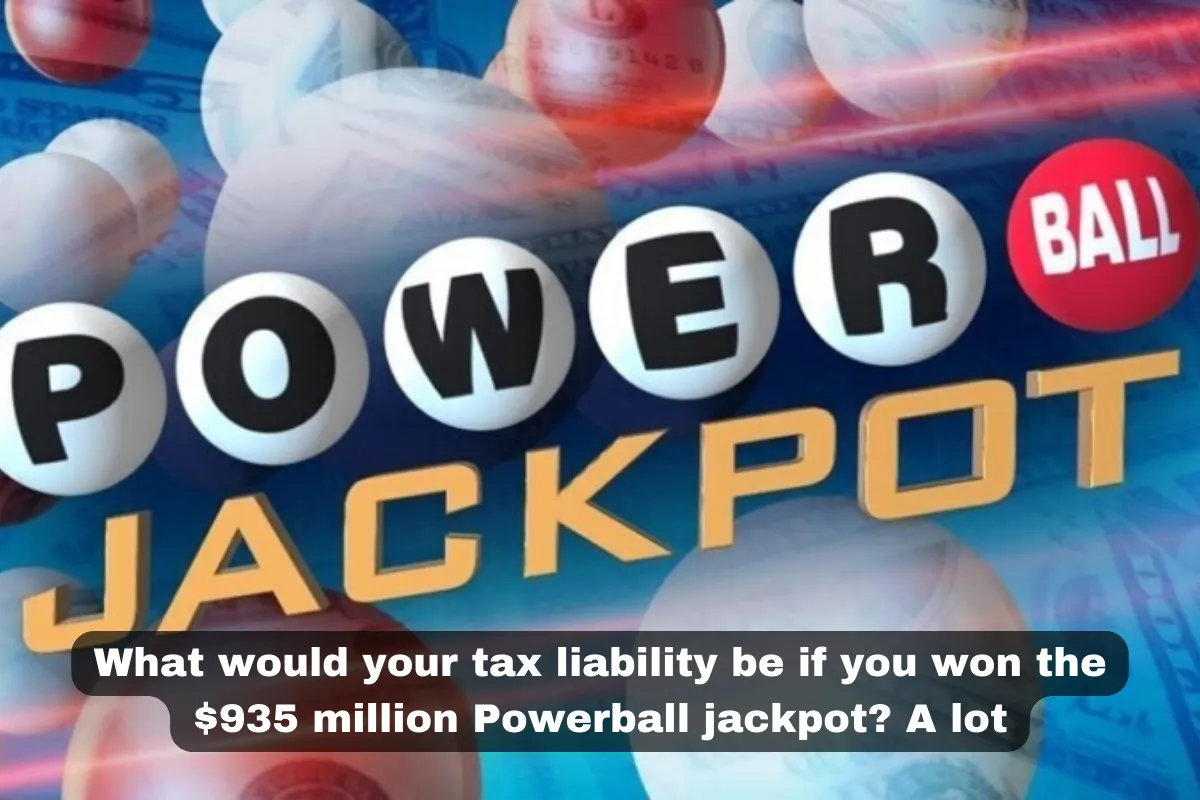Finally, it comes down to one for you and nineteen for the tax collector.
Despite the fact that they are the only ticket that contains all six of the correct numbers, the person who wins the Powerball jackpot on Saturday will not be able to take home the entire projected $935 million prize from the lottery.
If an individual chooses to take the annuity option, which is what the advertised jackpot figure reflects, or the lump sum, the award will be subject to taxation.
Taking the lump sum was advised by an analysis published in USA TODAY in 2018.
If a winner joins the ranks of the luckiest individuals alive, such as the person from New Jersey who succeeded in winning the Mega Millions jackpot on Tuesday, there will be a significant amount of tax liability to pay.
(But, let’s be honest, they may cry about it in their mounds of new money, and that’s perfectly acceptable.)
Here is all you need to know about taxes on winnings from the lotto.

Federal taxes on Powerball wins
The income group that the winners fall into is used to determine the amount of federal lottery taxes that are owed.
The two highest income bands are now taxed at a rate of 37% for incomes that are greater than $578,125 and 35% for incomes that are greater than $231,250.
According to Lottery USA, the regulatory body of the lottery will automatically retain twenty-four percent of the prize, after which the winner will be responsible for paying the remaining amount.
According to the tax calculator provided by Lottery USA, a single winner of Saturday’s prize will get an estimated sum of $283,346,573 from the cash option if they are subject to a tax rate of up to 37% and reside in a state where the only taxes that are due are federal taxes.
State taxes on Powerball wins
Most states charge a tax on lottery winnings.
According to Lottery USA, New York has the highest tax on winners at 10.9%, followed by Maryland (8.9%) and the District of Columbia (8.5%).
According to Lottery USA’s tax calculator, if the Powerball winner lives in New York and does not take any deductions, they will have to pay $49,017,300 in cash.
Ten states and territories exempt lottery winners from paying taxes. They are:
Most states impose a tax on lottery wins.

New York levies the highest tax on wins at 10.9%, followed by Maryland (8.9%) and the District of Columbia (8.5%), according to Lottery USA.
If the Powerball winner lives in New York − assuming there are no deductions − they will have to pay $49,017,300 on the cash option, according to Lottery USA’s tax calculator.
There are ten states and territories that do not tax lottery winners. They are:
California
Delaware
Florida
New Hampshire
Puerto Rico
South Dakota
Tennessee
Texas
Washington
Wyoming
Where to purchase lottery tickets
It is possible to purchase tickets in person in convenience stores, supermarket stores, and gas stations to purchase them. Additionally, lottery tickets might be sold at certain airport terminals.

Jackpocket, the official digital lottery courier of the USA TODAY Network, also allows you to order tickets online in the following states and territories of the United States: Arizona, Arkansas, Colorado, Idaho, Massachusetts, Minnesota, Montana, Nebraska, New Hampshire, New Jersey, New Mexico, New York, Ohio, Oregon, Puerto Rico, Texas, Washington, District of Columbia, and West Virginia.
On your mobile device or personal computer, you can use the Jackpocket app to select your lottery game and numbers, place your purchase, view your ticket, and collect your wins. All of these activities can be done simultaneously.
The United States of America Today Network has designated Jackpocket as the official digital lottery courier.
When audience members are referred to Jackpocket services, Gannett may receive a financial reward. Be at least 18 years old, 21 years old in Arizona, and 19 years old in Nebraska.
Having no connection to any state lottery in any way. Problems with Gambling? In the state of New York, dial 1-877-8-HOPE-NY or send a text message to HOPENY (467369); in the state of Massachusetts, dial 1-800-327-5050; in the state of Oregon, dial 1-877-MYLIMIT; in the state of Puerto Rico, dial 1-800-GAMBLER; and in all other states, dial 1-800-GAMBLER.
